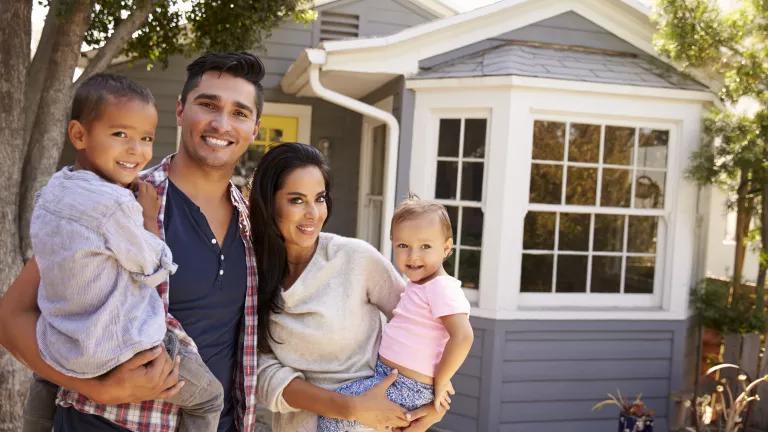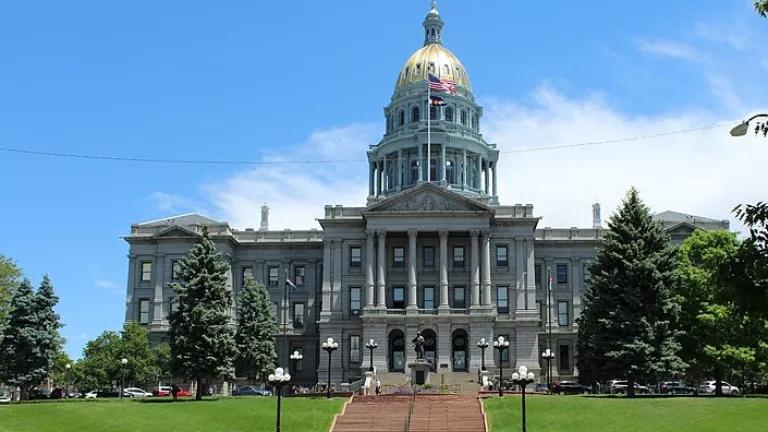Colorado’s SB 246 a Major Step Toward Healthier Homes
Colorado Senate Majority Leader Steve Fenberg introduced a much-needed proposal this legislative session to help Coloradans transition to healthier homes powered by affordable, clean electricity.

iStock
Colorado Senate Majority Leader Steve Fenberg introduced a much-needed proposal this legislative session to help Coloradoans transition to healthier homes powered by affordable, clean electricity.
Right now, most Colorado homes and businesses depend on fossil (aka “natural”) gas and are cumulatively responsible for 10 percent of the state’s greenhouse gas (GHG) emissions. Burning gas in homes and buildings also contributes to indoor air pollution that can make Colorado families sick: children living in homes with gas stoves have up to a 42 percent higher risk of experiencing asthma symptoms.
These GHG emission and indoor air pollution issues disproportionately impact Black, Indigenous, and people of color (BIPOC) and low-income communities that already experience poorer health outcomes.
Yet, despite these risks, we still use fossil fuels like gas, propane, and fuel oil to heat our water and spaces, and to a lesser extent for cooking. Fortunately, we can now use ultra-efficient electric technologies for all of our home energy needs.
How SB 246 Works
Replacing old fossil fuel systems with efficient appliances that can run on 100 percent clean electricity is called “building electrification.” Senate Bill 246, the legislation introduced by Majority Leader Fenberg, will kick Colorado’s building electrification transformation into high gear.
The bill directs utilities Xcel and Black Hills Energy to launch programs to increase the availability—and reduce the cost—of efficient electric appliances in Colorado. No one will be forced to replace their appliances; instead, these programs will make it easier for Coloradoans to find, purchase, and install healthy electric options if they choose. For example, when an old fossil fuel-powered appliance such as a water heater or stove fails or is in need of replacement for any reason, the SB 246 programs could ensure an efficient electric replacement option is available at local stores for the same price as a gas-powered version.
The bill also directs the Colorado Public Utilities Commission to set goals for GHG emissions from the voluntary electrification of single-family and multifamily homes, all sizes of commercial buildings, and even large industrial facilities. These goals will ensure that the utilities maximize the climate and health benefits from building electrification in their territories.
If passed and signed into law, SB 246 will set these important processes in motion and will do so with equity as a guiding principle.
Leading with Equity
Building electrification can be especially transformative for BIPOC and low-income communities. Investing utility funds in highly efficient and cleaner building systems can reduce energy costs, improve indoor air quality, and create local family-sustaining jobs.
To ensure Colorado delivers on this potential for positive transformation, SB 246 requires that at least 20 percent of electrification investments be directed toward disproportionately impacted communities, which include historically underserved BIPOC communities and families with lower incomes.
Additionally, customers who apply for utility rebates for electric industrial, commercial, and central multifamily building systems must use licensed contractors who adhere to strong workforce standards, like good training programs and livable wages.
Efficient all-electric buildings are a proven, least-cost tool for eliminating carbon emissions from buildings. Transitioning all our buildings to healthy, affordable, efficient electric technologies is a key strategy for meeting Colorado’s climate goals. SB 246 can get the state on the right path to cleaner, healthier buildings.



